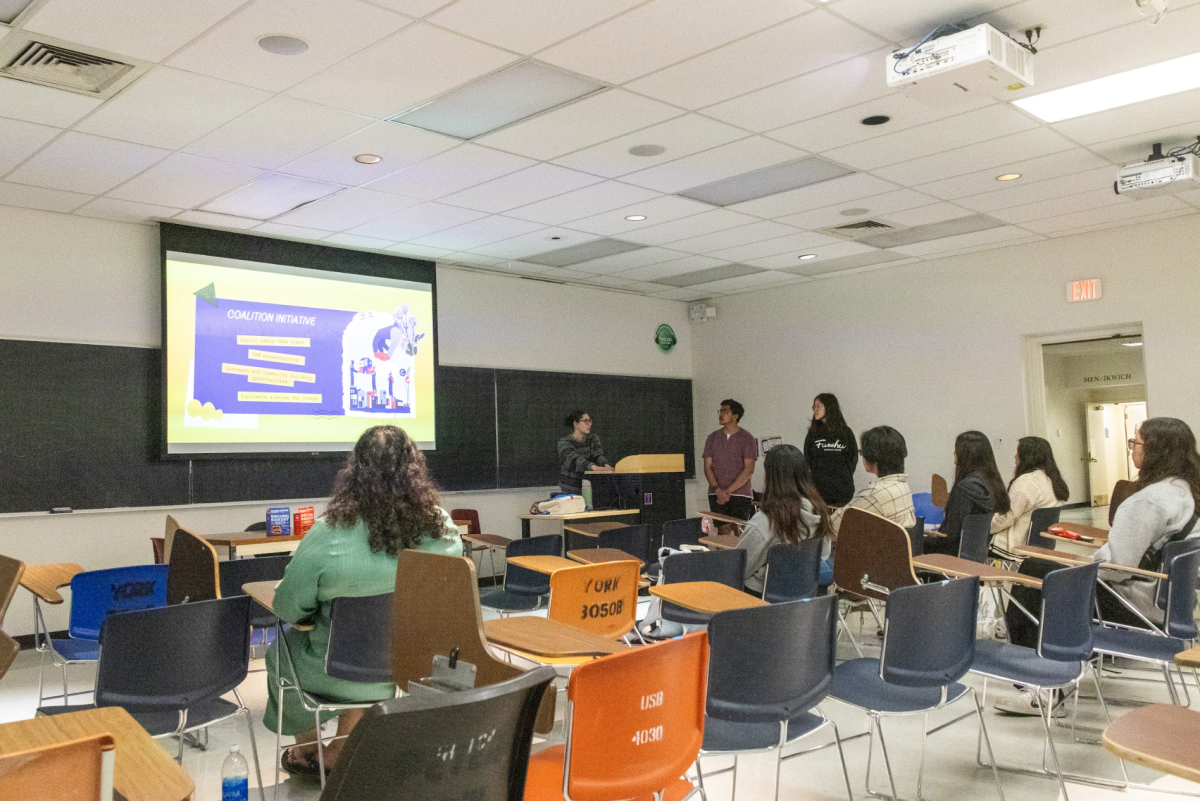Imagine that your midterms were canceled. Life would be easy; you could sit back, relax and not have to stress over your classes until finals, which are still weeks away.
That’s what happened to Warren senior Wendy Strangman last year. Her anthropology midterm was canceled and she was off the hook. That was, of course, until her 17-page final research paper was due, which was worth 90 percent of her grade because of the canceled midterm.
“”I had, of course, left it until the day before it was due,”” she said, although she’d had the entire quarter to work on it.
Sound familiar? Although not many of us are lucky enough to have our midterms canceled, most of us are probably familiar with this kind of procrastination — and the stress that it brings.
Stress among college students runs high and for long periods of time. With so much pressure on students from trying to balance school, work, family and friends, stress is inevitable. It is important to be able to recognize the sources of stress, its signs, symptoms and how you can reduce occurrences of stress.
For Strangman, the stress was incredible.
“”All day I was excited and stressed,”” she said. “”My brain started to shut down and wouldn’t do anything. So instead of doing all of the many things I had to do that day, I did nothing.””
She also felt shaky, experienced problems from her asthma and had neck pains.
These symptoms are very common indicators of high stress levels. They can vary from person to person, but some general signs include chronic fatigue, increased irritability, a change in appetite, changes in behavior or emotional patterns, and body aches and pains not caused by exercise. A highly stressed individual can also increase alcohol, drug or cigarette use, experience a change in bowel or bladder habits, changes in sleeping or waking patterns and an inability to focus on tasks effectively.
According to UCSD psychologist Linda Young, common stressors are issues of achievement and relationship. For students, achievement issues may include academics, time management, finances, status among peers and personal identity development. Students can also feel stress over new relationships at school, maintaining friends from high school, changing family relationships and issues with romantic relationships.
“”We often feel stress when we think about expectations we have of ourselves, or expectations others have of us, and we fall short of these expectations,”” Young said.
Specifically at UCSD, Young noted, stress can come from an intense feeling of competition among students.
“”Freshmen come in who were big fish in a small pond.”” she said. “”Now they are small fish in a big pond but still feel pressure to rise to the top.””
Many students’ reports of stress concur with Young’s laundry list of stressors.
Dana Vander Houwen, a Warren senior, said she gets stressed out by trying to spread herself too thin. She also noted, however, that there is a thin line between stress that can have a positive influence on a student’s performance and stress that affects students negatively.
Young agrees, and said that levels of stress that are too low can hamper performance as well as levels of stress that are too high.
“”Just the right amount of challenge motivates students to do their best work,”” she said.
Unfortunately, finding this “”just right”” amount can be difficult for students. Many students use procrastination to motivate them, but can misjudge their mark and raise their stress levels too much, creating anxiety and the inability to perform well.
Because the workload is usually higher at UCSD than in high school, entering freshmen may miscalculate how long they can afford to procrastinate before studying hard.
Often, if symptoms of high stress levels go untreated, they can accumulate to cause even more stress and anxiety. According to Dr. John Barrow at Duke University, “”stress that is ineffectively managed and remains too high for too long can contribute to physical breakdowns of the body. Examples of medical conditions that are related to stress include heart and circulatory diseases, ulcers, colitis, asthmatic conditions and lowered immunity leading to infectious illnesses.””
So what should we do to manage our stress?
Barrow gives useful advice at Duke’s Student Health Web site, http://healthydevil.stuaff.duke.edu/info/
healthinfo.html.
First, he states the importance of recognizing the cause of the stress and asking what can be done to change it. Alternately, it may be better to accept the situation with a positive attitude.
It can then be helpful to talk with supportive people, take a bath, listen to music or otherwise distance yourself from the stressor.
On the physical side, techniques such as progressive muscle relaxation, mental imaging and diaphragmatic (deep) breathing can help as well. He stresses the importance of adequate sleep, regular exercise, balanced eating and keeping hydrated.
Barrow writes, “”Identify ways you think yourself into higher levels of stress, including catastrophizing (making mountains out of mole hills), overgeneralizing (jumping to conclusions), dichotomous thinking (right-wrong, good-bad) and perfectionist thinking (‘I’m no good unless I’m perfect’). Then find ways to nudge yourself out of these mental ruts.””
Strangman took advantage of several of these stress-reducing techniques during her anthropology paper crisis.
“”To combat my stress, I took a break and ran campus loop, made myself a salad, and drank OJ and water to re-hydrate myself,”” she said. “”And I turned to my friends for support.””
For especially stressful life events, nearly all experts agree on what to do: Seek professional help.
Students at UCSD seem to practice many of these techniques. Exercising, sleeping and going out with friends are popular methods of reducing stress.
Efrat Stark, a Muir junior, said she tries to “”look at the big picture and realize it’s not a big deal”” when something is stressing her out. Amelia Winslow tries to prioritize her time by making a to-do list and checking off each item as it is completed.
Under normal circumstances, Strangman prevents stress by trying to schedule things out in advance so she does not leave important things until the last minute. She also tries to remember “”that most things aren’t worth getting stressed out about,”” and while they might seem important at the time, she tries to maintain a healthy perspective.
UCSD Psychological and Counseling Services offers a number of resources for students feeling too stressed out or who want to learn better time- and stress-management skills.
In addition to individual counseling services, two workshops are being offered this quarter for all UCSD students. “”Stress Management Skills”” is a six-session workshop that will teach specific, personalized skills to help students cope with stress. “”Time Management”” is another series of workshops designed to assist busy students with managing their time and energy.
For more information about other resources available at Psychological and Counseling Services, visit their Web site at http://www.ucsd.edu/psychserv.com or call them at (858)534-3755.







